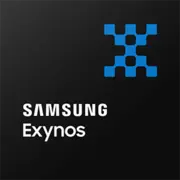Qualcomm Snapdragon 778G vs Samsung Exynos 1380
SoC Comparison Result
Below are the results of a comparison of Qualcomm Snapdragon 778G and Samsung Exynos 1380 mobile processors based on key performance characteristics, as well as power consumption and much more.
Advantages
- Higher Technology: 5 nm (6 nm vs 5 nm)
- Higher Max Bandwidth: 51.2 Gbit/s (25.6 Gbit/s vs 51.2 Gbit/s)
- Newer Launch Date: February 2023 (May 2021 vs February 2023)
Basic
Qualcomm
Label Name
Samsung
May 2021
Launch Date
February 2023
SmartPhone Mid range
Platform
SmartPhone Mid range
-
Manufacturing
Samsung
SM7325
Model Name
S5E8835
1x 2.4 GHz – Kryo 670 Prime (Cortex-A78)
3x 2.2 GHz – Kryo 670 Gold (Cortex-A78)
4x 1.9 GHz – Kryo 670 Silver (Cortex-A55)
Architecture
4x 2.4 GHz – Cortex-A78
4x 2 GHz – Cortex-A55
8
Cores
8
6 nm
Technology
5 nm
2400 MHz
Frequency
2400 MHz
GPU Specifications
Adreno 642L
GPU name
Mali-G68 MP5
490 MHz
GPU frequency
950 MHz
-
FLOPS
0.608 TFLOPS
384
Shading units
-
2
Execution units
5
2.0
OpenCL version
2.0
1.1
Vulkan version
1.3
2520 x 1080
Max display resolution
2960 x 1440
12
DirectX version
-
Connectivity
LTE Cat. 24
4G support
LTE Cat. 18
是
5G support
Yes
5.2
Bluetooth
5.3
6
Wi-Fi
6
GPS, GLONASS, Beidou, Galileo, QZSS, SBAS, NAVIC
Navigation
GPS, GLONASS, Beidou, Galileo
Memory Specifications
LPDDR5
Memory type
LPDDR5
3200 MHz
Memory frequency
3200 MHz
2x 16 Bit
Memory Bus
4x 16 Bit
25.6 Gbit/s
Max Bandwidth
51.2 Gbit/s
Miscellaneous
Hexagon 770
Neural processor (NPU)
Yes
2 MB
L2 Cache
-
AAC, AIFF, CAF, MP3, MP4, WAV
Audio codecs
AAC, AIFF, CAF, MP3, MP4, WAV
1x 192MP, 2x 36MP
Max camera resolution
1x 200MP
UFS 2.1, UFS 2.2, UFS 3.0, UFS 3.1
Storage type
UFS 3.1
4K at 30FPS
Video capture
4K at 30FPS
H.264, H.265, VP8, VP9
Video codecs
H.264, H.265, VP8, VP9
4K at 30FPS
Video playback
4K at 30FPS
5 W
TDP
5 W
ARMv8.4-A
Instruction set
ARMv8.2-A
Benchmarks
Geekbench 6 Single Core
Snapdragon 778G
981
Exynos 1380
1008
+3%
Geekbench 6 Multi Core
Snapdragon 778G
2787
+1%
Exynos 1380
2773





